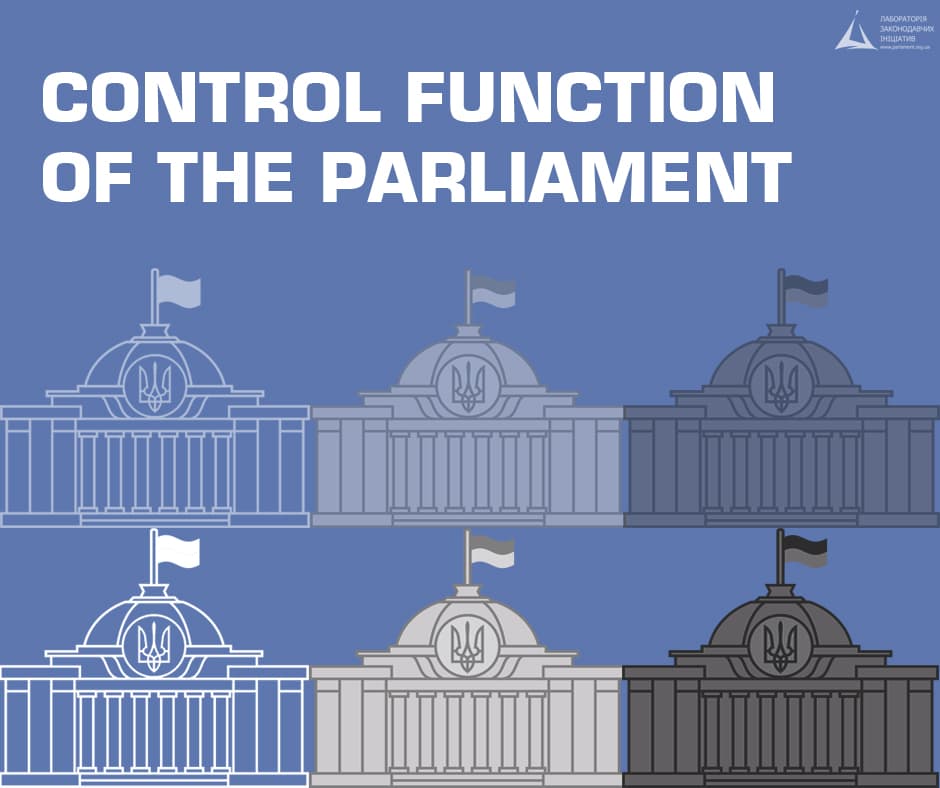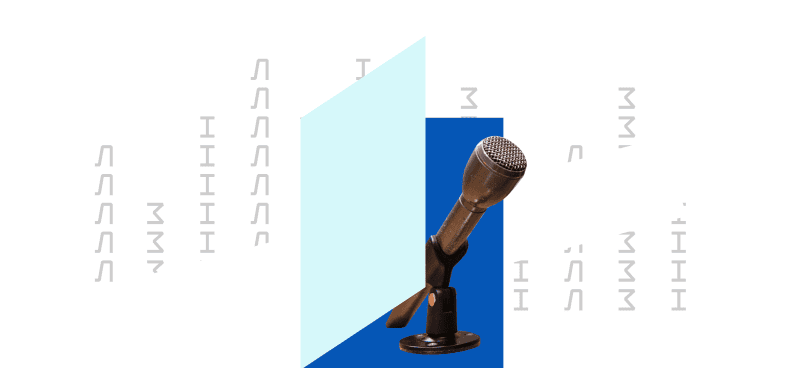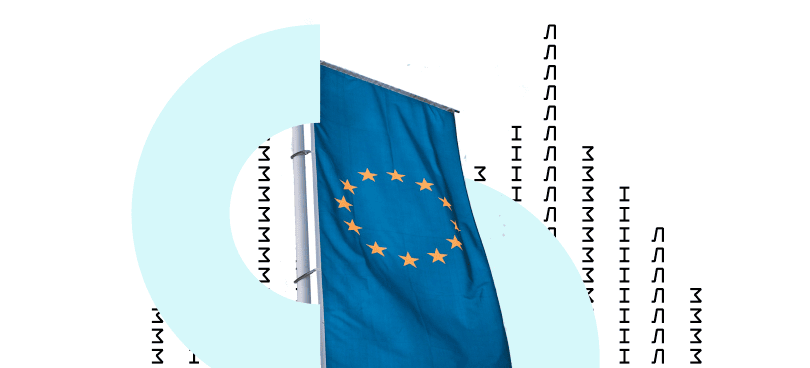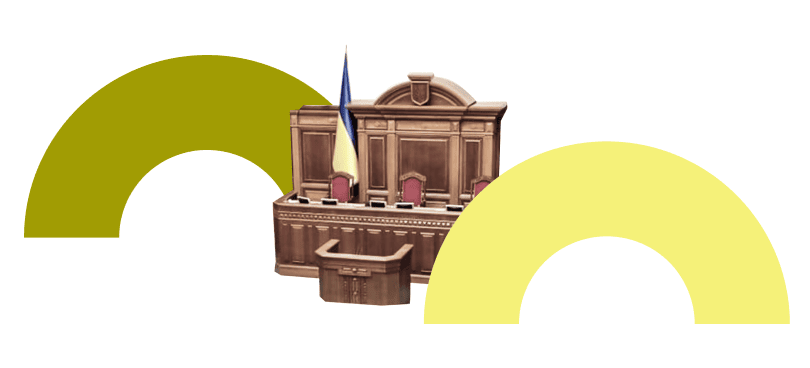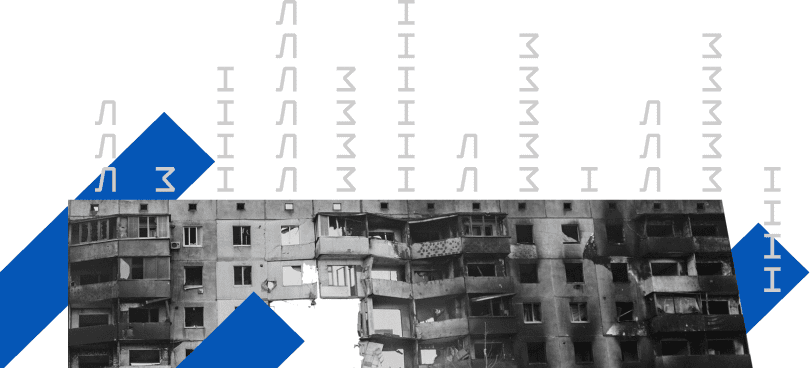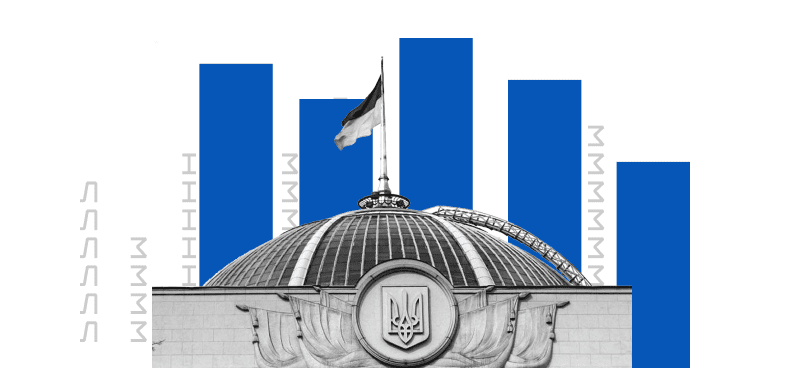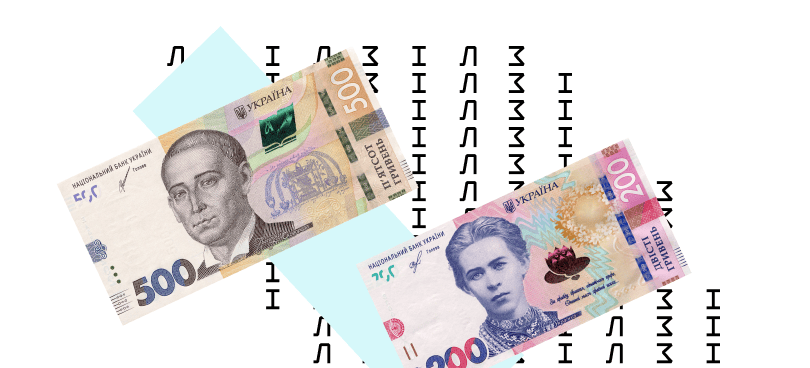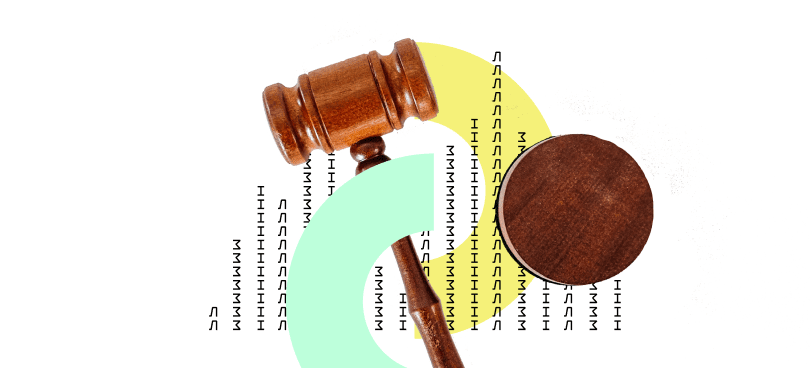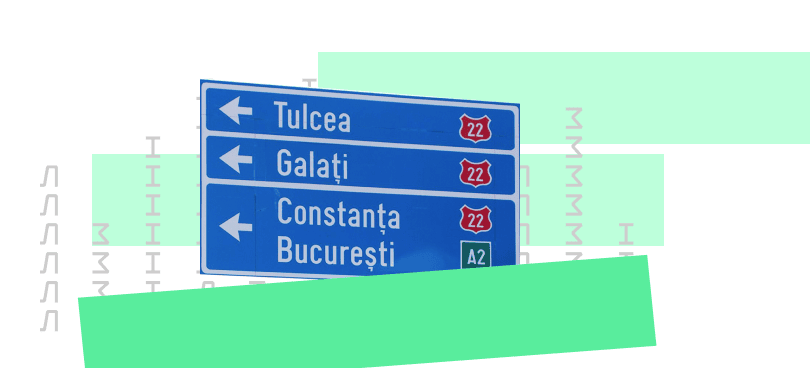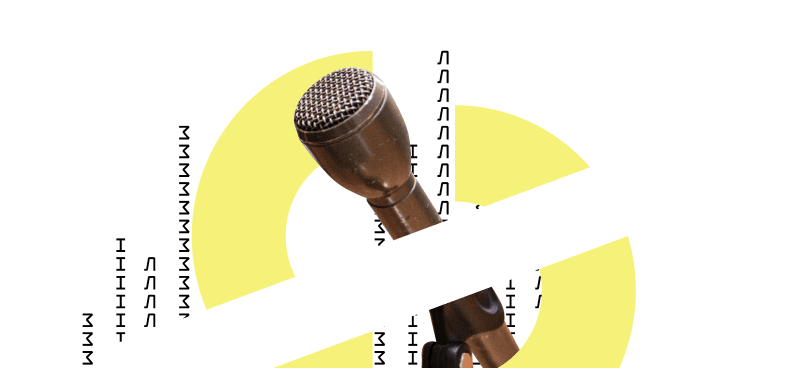Since the creation of the White Paper on Ukrainian Parliamentarism, and since the beginning of the comprehensive parliamentary reform in 2016, experts and MPs have repeatedly stressed the importance of strengthening parliament’s control function. But what does that mean? And does the call for strengthening the parliament’s control function always mean increasing the constitutional parliamentary control?
For starters, a little context. Recently, MPs passed in the first reading the draft law №4131 to ensure the effective implementation of parliamentary control. It does not propose radical measures, but given the explanatory note and the comments provided by the Central Scientific Experts Office and parliamentary experts, it can be concluded that there are terminological difficulties in the discussion on parliamentary control. Comments on the draft law will be set out at the end. And first, let’s deal with the concept of parliamentary control.
The concept of parliamentary control
In legal doctrine, “parliamentary control” is interpreted quite broadly. The most common will be the following definition:
Parliamentary control is the ability of the legislature to restrain the activities of the executive.
Restraint, however, may mean the ability to influence the actions of the executive branch. However, this effect can be different in form and intensity.
The specificity of the control function is that
“Control powers are” present “in all functions of the Verkhovna Rada and at all stages of the parliamentary process. Thus the control function is realized through two groups of powers: powers of the first group have only control value; others are complex, and equally belong to the control and other functions of the Verkhovna Rada of Ukraine”.
So we can talk about parliamentary control in the broadest sense and parliamentary control in the narrow sense. In turn, the latter means the possibility of direct influence on the results of control actions – for example, dismissal.
Researchers distinguish the following types of parliamentary control:
- party control (usually used by the opposition);
- non-partisan control (through parliamentary oversight, which can take many forms: questions, committees, hearings, etc.);
- control with the possibility of applying “sanctions” (for example, expressions of no confidence in the Government, the Prosecutor General, dismissal, etc.).
In Ukrainian legal thought, a similar division was proposed by Barabash, who divided parliamentary control according to the consequences of “mandatory” and “recommended”. For simplicity, we will use this division.
It is the “mandatory” type of parliamentary control, or control with the possibility of applying “sanctions”, which is the most radical way of influencing. Because of this, it is the subject of the Constitution. This is what the Constitutional Court draws attention to in its judgment of 10 May 2000 № 8-rp / 2000:
“The Verkhovna Rada of Ukraine exercises parliamentary control in various organizational and legal forms, but only within limits set by the Constitution of Ukraine.”
In this sense, the Constitutional Court interprets parliamentary control in a narrow sense. We cannot but agree that parliamentary control, with the possibility of direct adverse consequences (for the executive branch), can be exercised only within the Constitution. This naturally follows from the constitutional principle of separation of powers. Here we can mention such forms of parliamentary control as reporting of the Governor of the National Bank, the Prosecutor General, reports of the Cabinet of Ministers of Ukraine, etc.
In general, there should be no difficulty with mandatory parliamentary scrutiny. The bodies subject to such scrutiny must report to parliament in setting the deadline. Here you can discuss the timing of reporting and its content. It is necessary to consolidate the options for the parliament’s response to such reports.
At the same time, in a broad sense, “parliamentary control” is a component of any activity of the Verkhovna Rada. Even the adoption of laws carries a share of control (to pass a quality law, you need to have information about problems in implementing existing laws). And in this context, parliamentary control can be regulated by law. This is when we talk about the formal expression of parliamentary control.
But what does parliamentary scrutiny include in a broad sense? And what forms can be offered? In addition to parliamentary inquiries, parliamentary hearings, and “government question hours,” we should focus on such a seemingly insignificant way of parliamentary control as informing.
Control, in this case, is primarily the possession of information. Having sufficient information on the implementation of laws, problems, and implementation of policies, the Verkhovna Rada can influence public authorities through legislation changes.
In addition, the dual nature of parliamentary control is clearly manifested here: 1) as state control and 2) public control. Subjects of parliamentary control, having all the hallmarks of state oversight institutions, also influence violators of the law through such instruments of public scrutiny as public opinion and widespread media coverage. Even hearings in plenary or committee meetings of information from any public body can be considered parliamentary scrutiny in a broad sense.
Information is an important part of parliamentary scrutiny. Many researchers have written about increasing the role of parliamentary control without “sanctions”.
Parliament should communicate with other government agencies and request information and the presentation of this information from various government agencies.
Such information helps the Verkhovna Rada to understand current issues, the state of implementation of laws.
Coverage of public authorities in parliament makes their work more transparent and public reporting processes systematic. We can talk about creating a certain culture of reporting by public authorities to the public and submitting such reports to the Verkhovna Rada through the information procedure.
However, such measures’ effectiveness largely depends on the organization of work (especially on the design of the reporting system) within the Cabinet of Ministers. The key here is the reform of public administration. In this context, close cooperation between the government and parliament is needed. This implies clear requirements for public authorities to report to the public and the Cabinet of Ministers. The Verkhovna Rada can play the role of a catalyst in this process.
It is probably necessary to legislate the procedure of informing the state bodies of the Verkhovna Rada or its committees. However, the current provisions of the Rules of Procedure allow doing so without further detail. It all depends on how determined the committees are to communicate with the relevant bodies, receive and process information from them, and the general understanding of the MPs of such actions priority. With the advancement of public administration reform, committees must organically come to the principle of “more intensive control over specific issues”. However, for supporters of the positivist concept of law, the following can be noted: the Rules of Procedure can enshrine the process of initiating the information procedure, set reasonable deadlines for the preparation of such information, oblige the Verkhovna Rada or the committee to form a clear list of issues. Standard forms of reporting should also be considered so that each body understands what may be required of it and documents its activities in a pre-agreed manner.
Another aspect that confuses terminology in parliamentary control is the “reporting” of a number of independent institutions that have a special legal status. For example, the National Commission for State Regulation of Energy and Utilities (the Regulator). The Verkhovna Rada only indirectly participates in the formation of this body through the appointment of part of the tender commission and has no leverage over the Regulator’s dismissal.
In cases with the Regulator and a number of other institutions, we have terminological confusion in the context of parliamentary control. The fact is that the Regulator must report annually to the Verkhovna Rada, but the latter cannot influence it in any way due to consideration of this report. So technically, it’s not reporting. It’s just informing. The purpose of such information is clear: the Verkhovna Rada should know whether the legal framework is being implemented effectively and what are the problems in this area, as well as to draw the attention of the public and the media to the activities of the Regulator. Therefore, it cannot and should not directly influence the Regulator, but it can influence the legislative regulation of the area in which the Regulator operates. What is important in such cases for effective control? Forms of reporting, constant communication, obligatory consultations with these bodies in case of changes in the sectoral legislation are coordinated with each such independent body.
It is necessary to mention the peculiarity of parliamentary control in the presence of a mono-majority in parliament. According to Duverger, the executive and legislative branches, government and parliament, are only constitutional facades. In reality, only parties exercise power.
In a parliamentary mono-majority case, the parliament (represented by the majority) has all the necessary levers for control through party mechanisms. At the same time, provided there is a majority, parliamentary control is informal, hidden from the general public and reduced to the party’s control over the government.
In other words, the majority has all the means to influence the government. In our current context, this means that claims that parliament does not have sufficient mechanisms to influence the government or individual ministers are not true (although weak party discipline may complicate such control). This, of course, does not preclude the need to improve the legal framework for parliamentary scrutiny and to launch a new round of discussions on guarantees of participation in parliamentary scrutiny by the opposition.
Draft law on ensuring the effective implementation of parliamentary control
The draft law proposes to set specific reporting dates for some government agencies. Such an initiative can be supported, although there is no urgent need to change these provisions. Because setting specific reporting dates could be part of informal regulation.
The draft law proposes to expand the participation of committees in the consideration by the Verkhovna Rada of the report of the Cabinet of Ministers of Ukraine on the progress and results of the implementation of the approved Program of Activities of the Cabinet of Ministers. This approach is justified because it improves the quality of control over the activities of the government. However, the intensity of measures and their quality remains subject to internal regulation. In short, it will depend only on the committees themselves whether the quality of control over the government will improve. After all, it is, first of all, about development by committees of internal standards of estimation of this program. It would be appropriate to organize some training for the staff of the committees’ secretariats (perhaps even joint training with representatives of the Cabinet of Ministers and ministries).
The draft law proposes to detail the provisions on consideration by the Verkhovna Rada of reports and reports of the Cabinet of Ministers of Ukraine. One of the novelties: The Verkhovna Rada is invited to provide an opportunity to formulate recommendations for the Cabinet of Ministers.
The draft law proposes to detail the procedure for reviewing the reports of several bodies on which the Verkhovna Rada makes personnel decisions (Prosecutor General, Chairman of the Security Service, Chairman of the National Bank, Antimonopoly Committee, State Property Fund, Accounting Chamber, Commissioner for Human Rights). Given that the rules are duplicated, it would be appropriate to create a single generalized rule that would regulate in detail the process of reviewing these reports and add options for decisions that may be taken as a result of the review. The alternative proposed in the draft law is slightly contrary to the legal technique and overloads the Rules, but does not pose a danger.
The most controversial in the draft law is Article 232-8, which provides for the consideration of reports, reports, and other government agencies and officials’ information. And although we noted above that parliamentary scrutiny in a broad sense may include information procedures, the draft law’s way of proposing this procedure is questionable. It is necessary to distinguish between reporting and informing because, according to the reporting results, the Verkhovna Rada can influence the reporting body. According to the results of informing the Verkhovna Rada can only indirectly influence the body’s activities through amendments to legislation. That is, those bodies to which the Verkhovna Rada has no relation cannot report to the Verkhovna Rada. Even if they present their annual report to the plenary, in parliamentary scrutiny, such a report will be considered informing. This raises the question of whether it is appropriate to include the concept of “report” in this rule. Therefore, in our opinion, this part needs significant refinement, as it does not follow from the text of the bill whether the MPs understand this difference. And the creation of additional terminological difficulties seems to be typical for the legislative process but still superfluous.
It seems important to carry out explanatory work on parliamentary control’s nature, its forms, and importance among MPs. The parliament has sufficient powers to exercise effective parliamentary control, especially given the fact that there is a mono-majority. The issue is to change MPs and committees’ patterns of work and increase interaction with the executive branch.
As a result, we have a draft law with a beautiful name, a noble purpose, without special “hardships” and special benefits.
We hope that this draft law will be a starting point for discussing the essence of the parliament’s control function. One could start (as always, in theory, and, as never before, in practice) by examining the control function’s implementation and identifying the main intra-parliamentary barriers to parliamentary control in the broadest sense.

